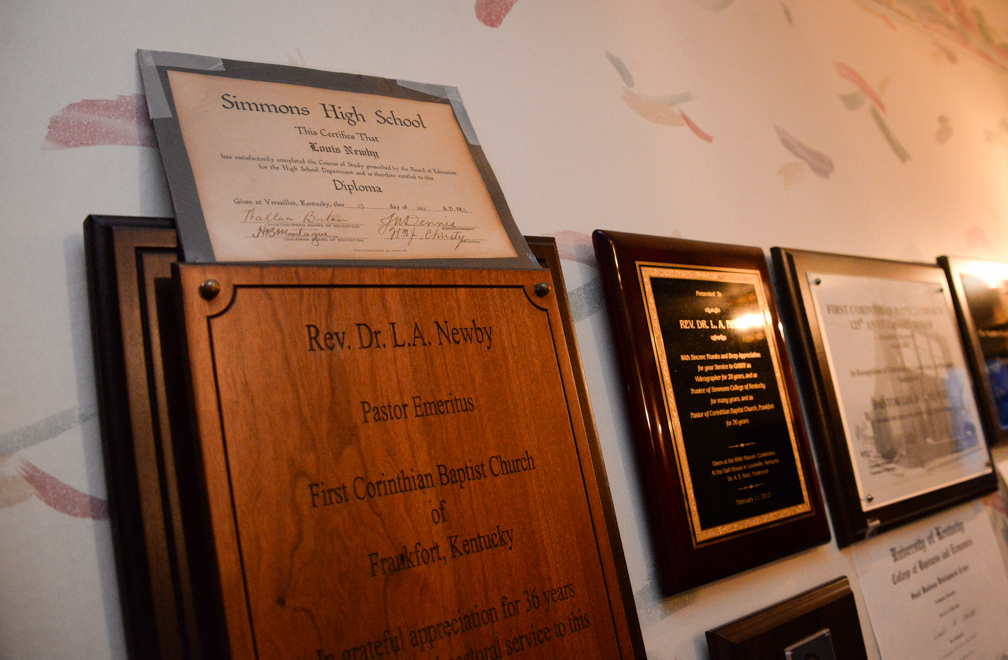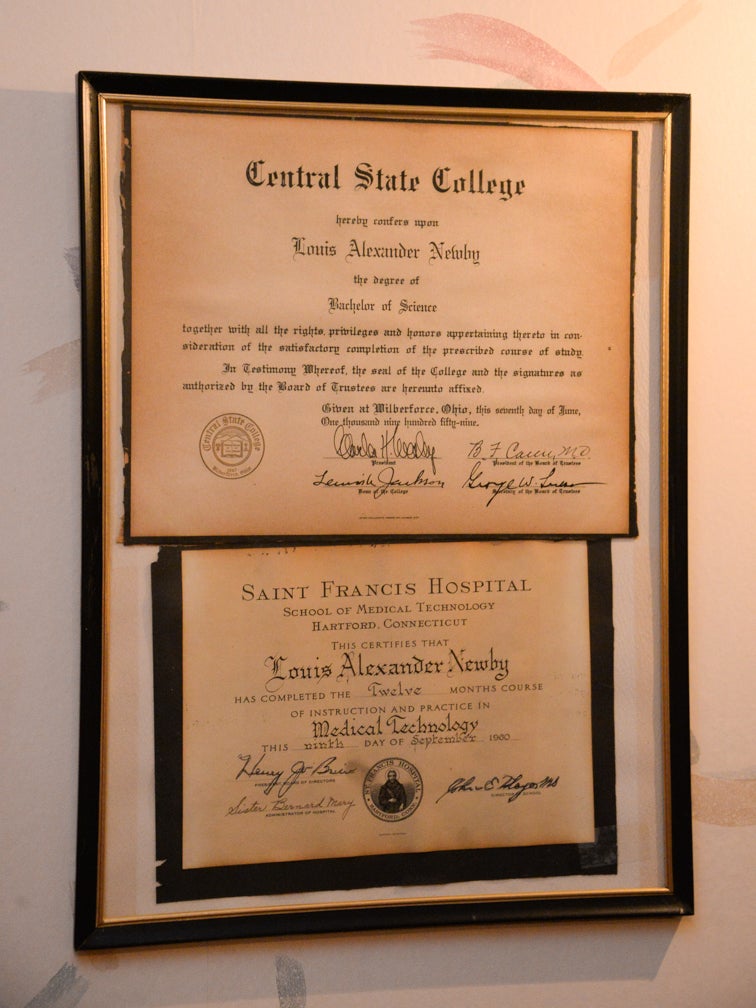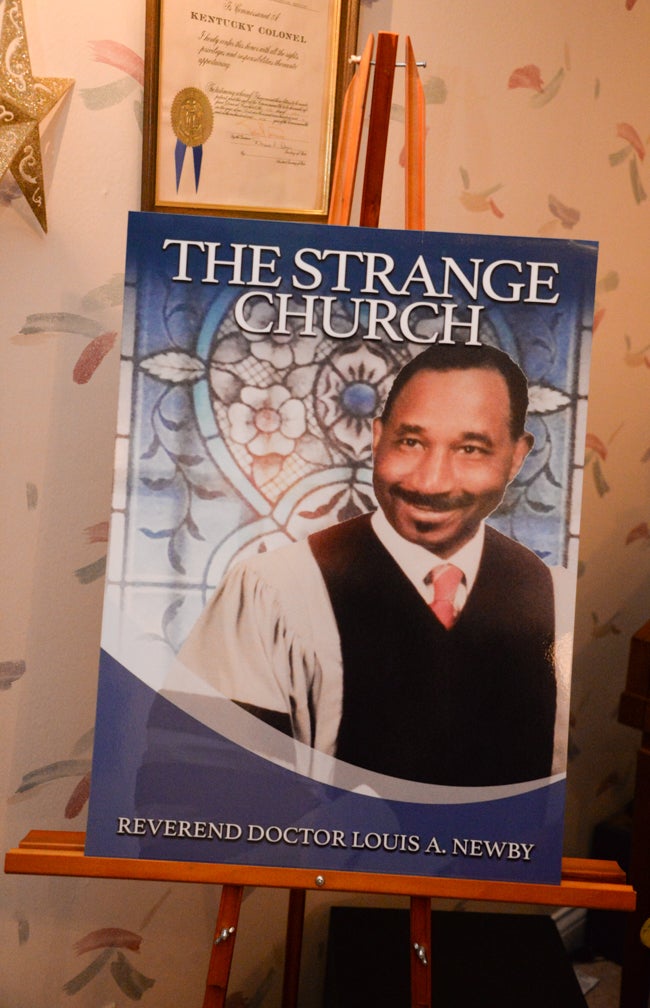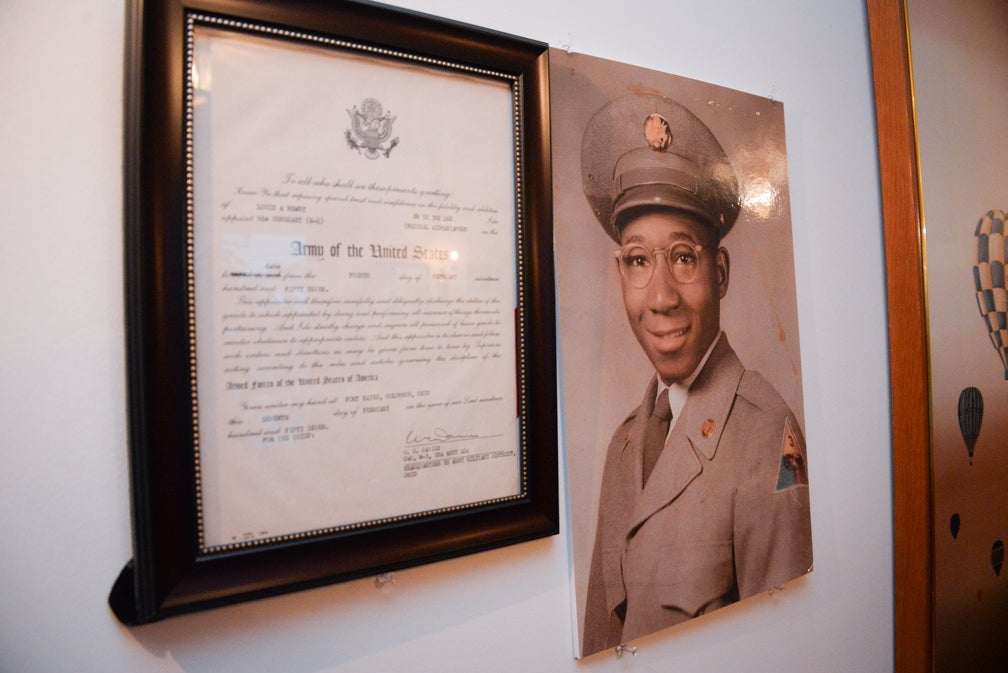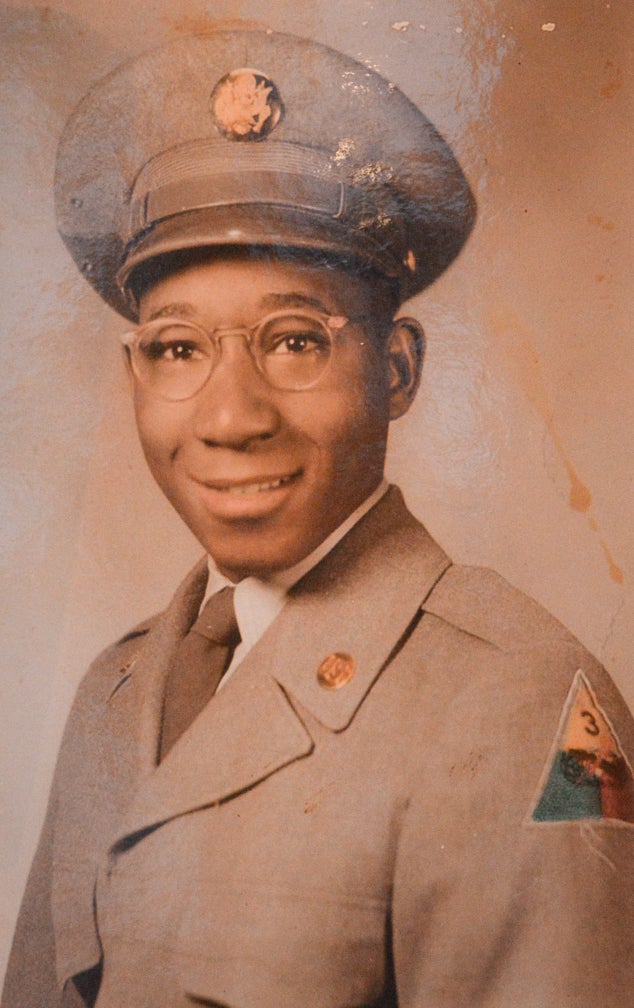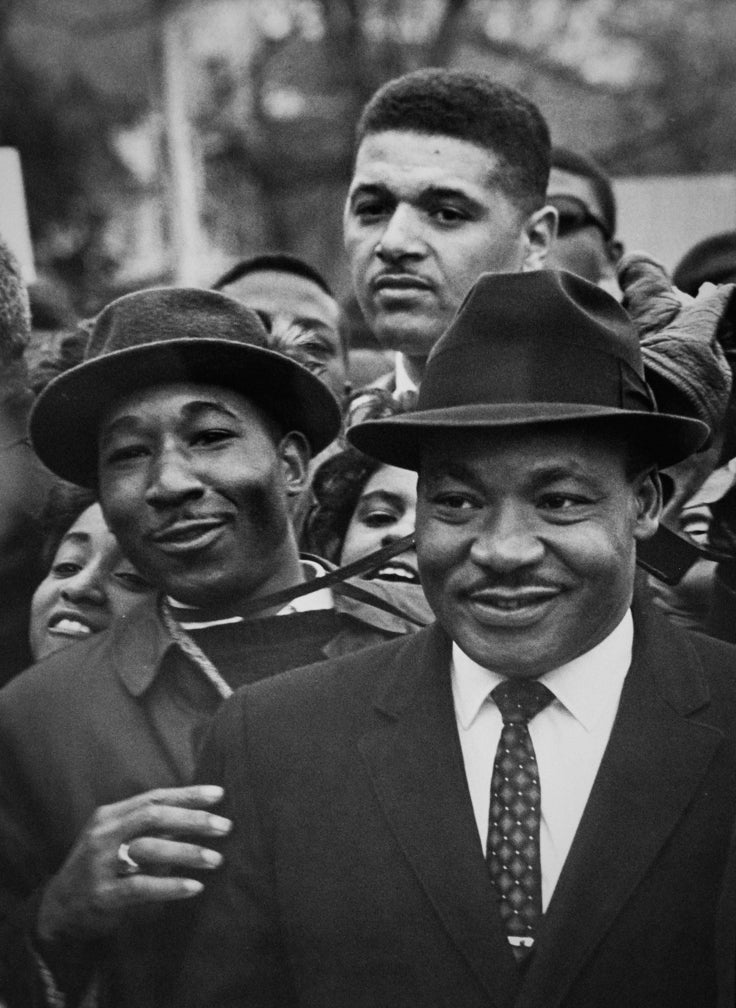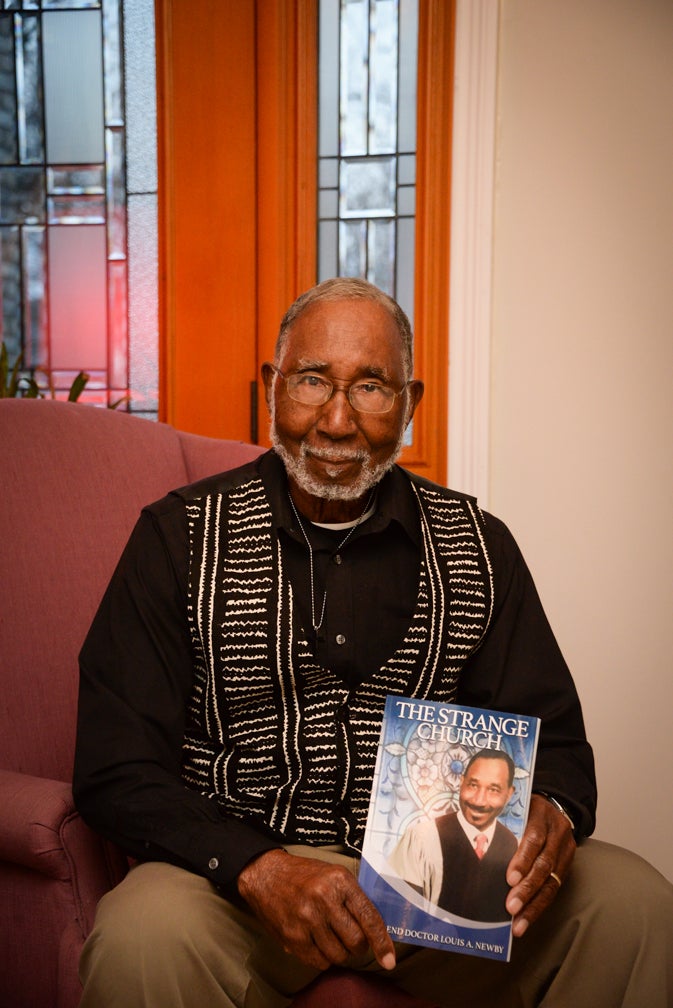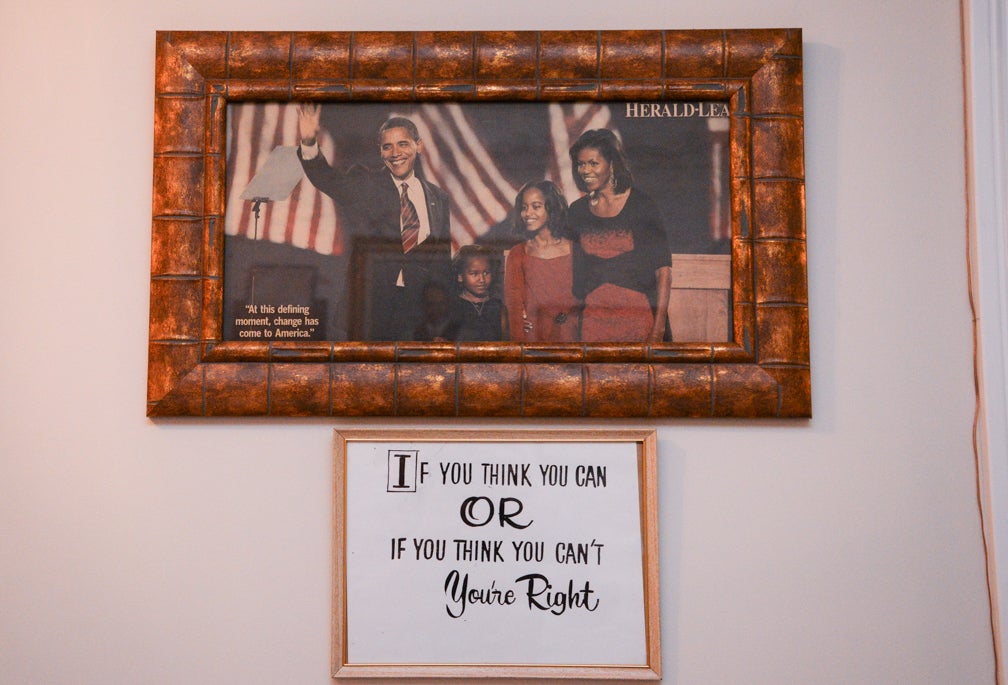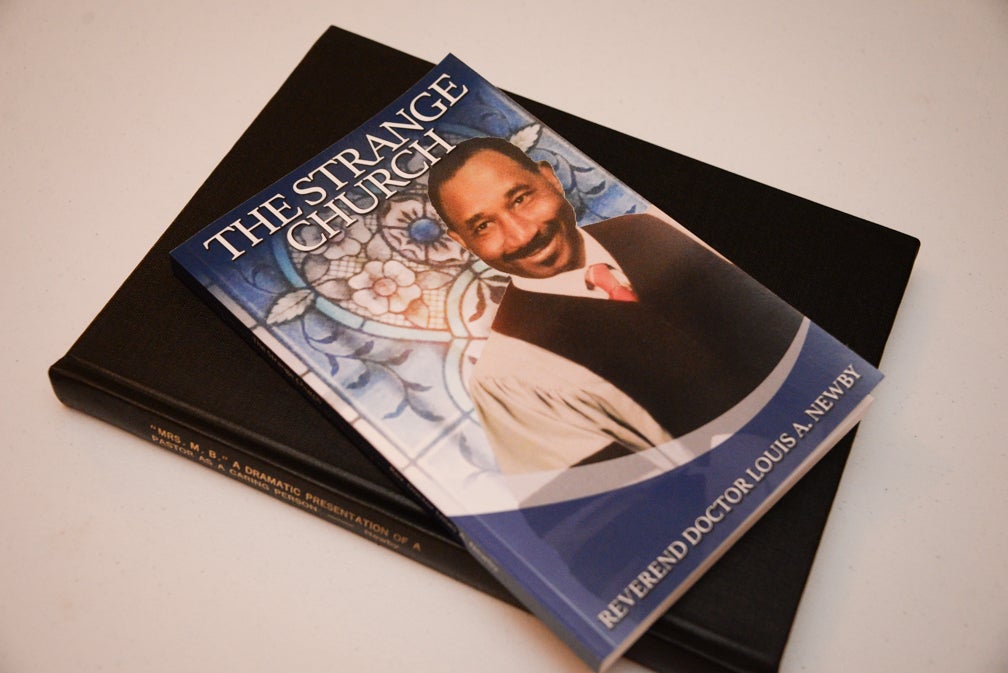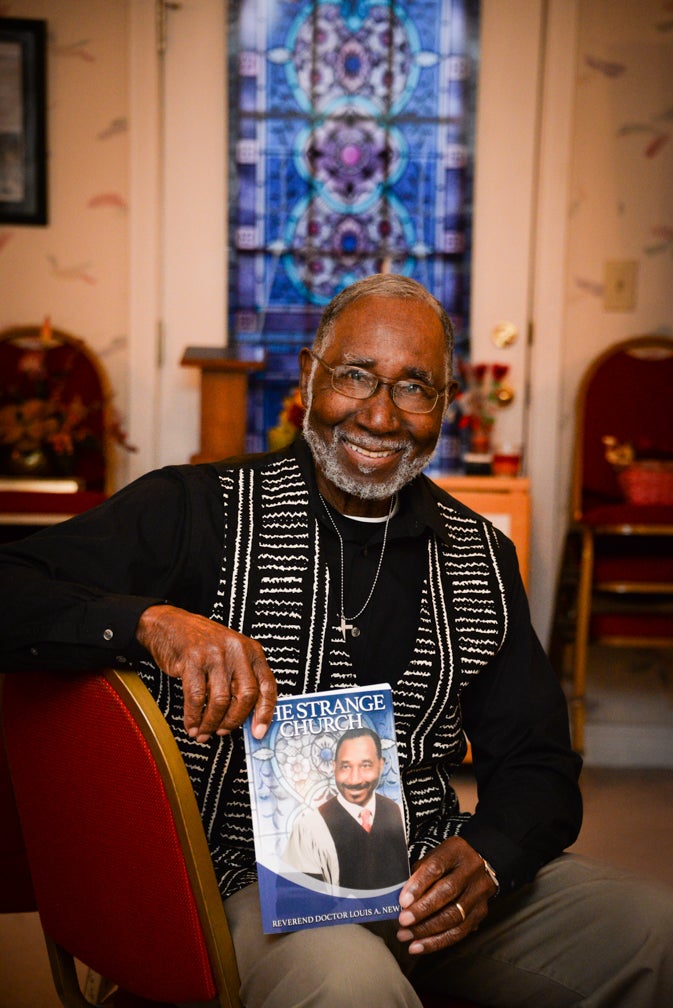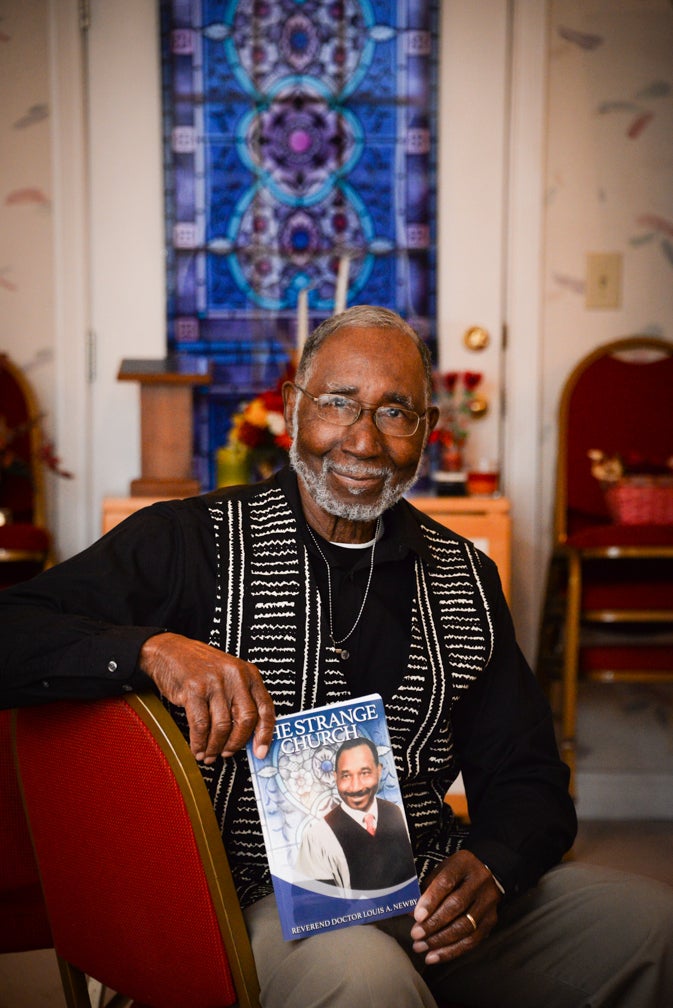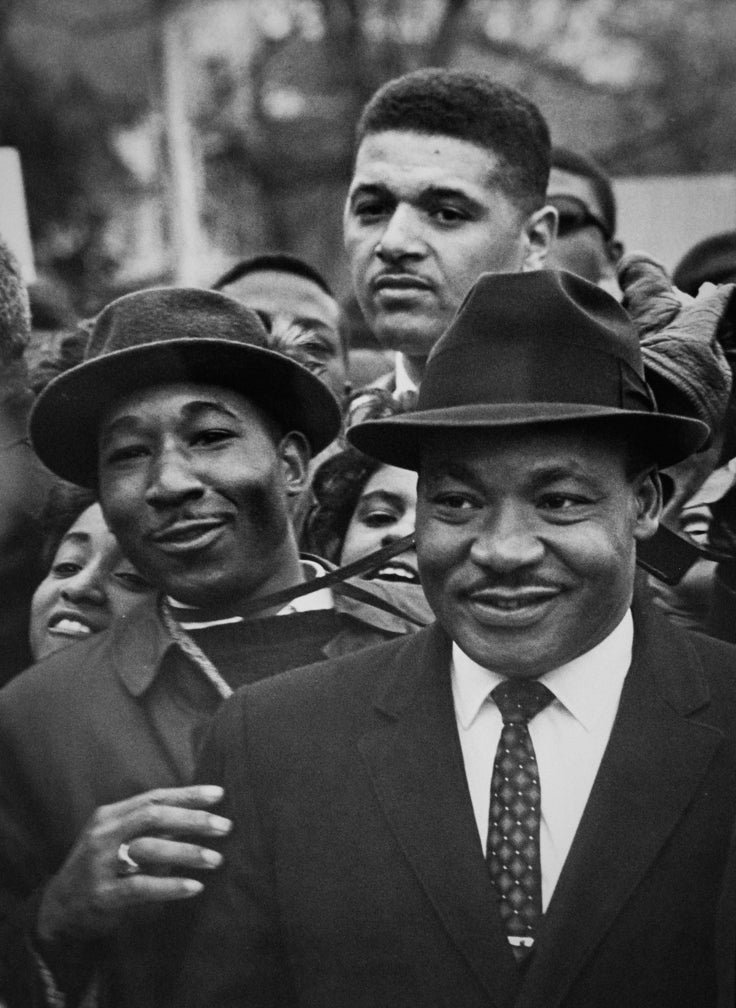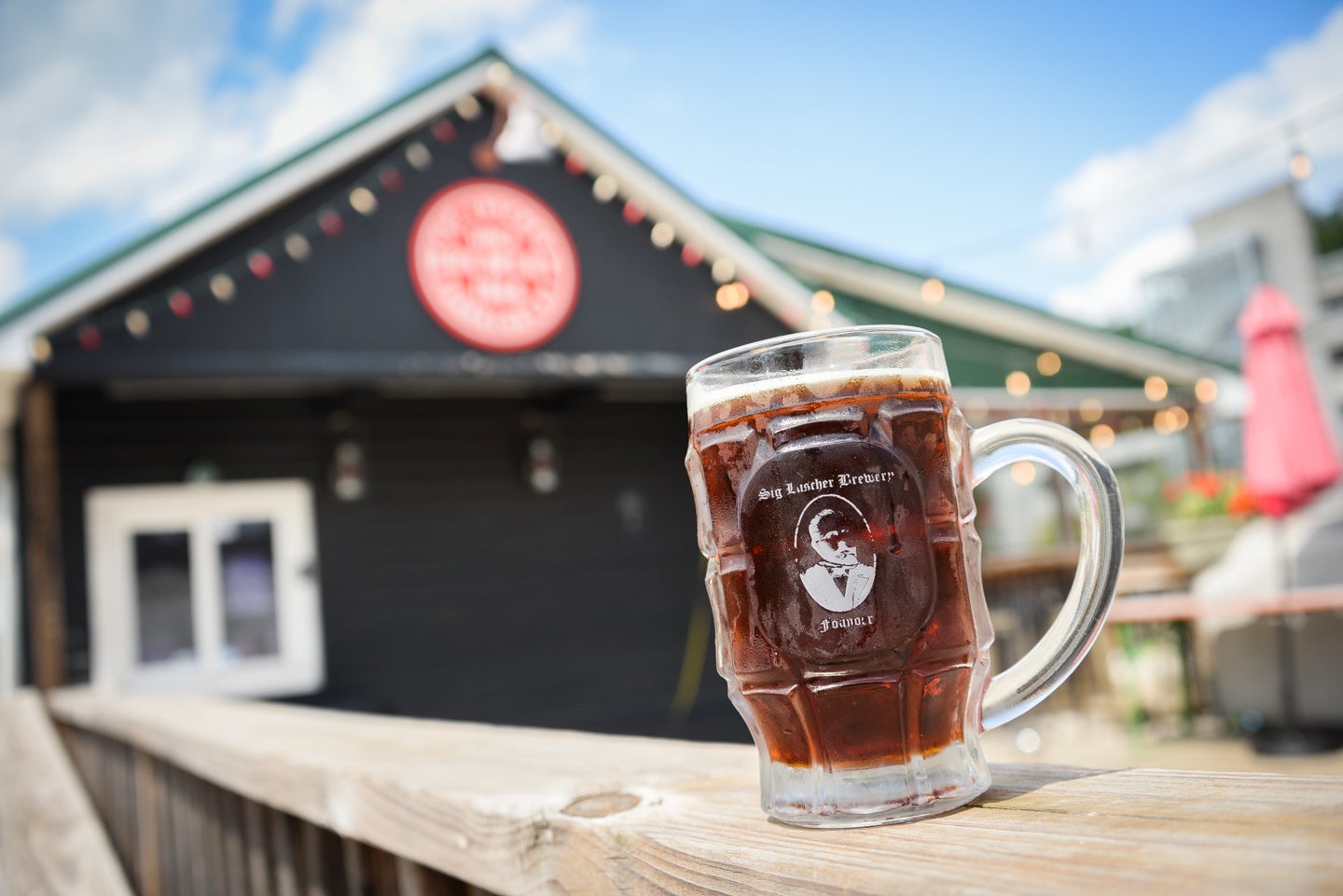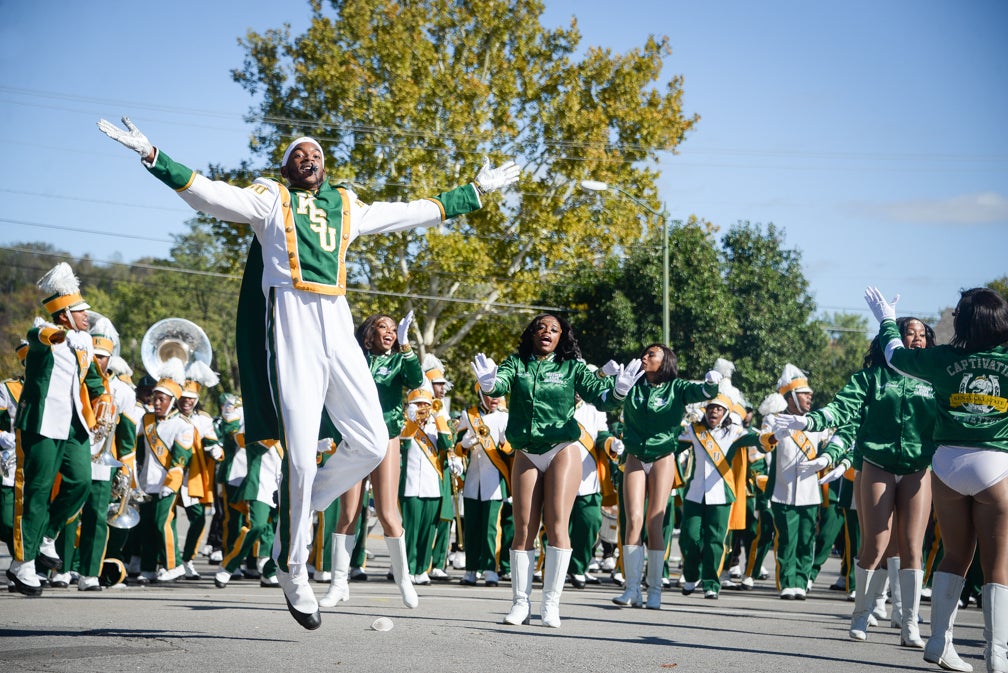One day while in Frankfort, Rev. L.A. Newby, former pastor of First Corinthian Missionary Baptist Church, got a phone call from a lady who worked at the Capitol.
“Do you know you have a picture with Dr. King?” Newby recalled the woman asking him.
She got a copy of it and brought it to him. Sure enough, it was Newby walking right behind Dr. Martin Luther King Jr. during King’s March on Frankfort on March 5, 1964. More than 10,000 people participated in the march to demand that the state legislature stop African Americans from being discriminated against at hotels, restaurants and other public places.
“The march started on Capital Avenue,” Newby said. “I wanted to get close to him. There were a couple of girls running and they bumped me, and in doing so, I bumped Dr. King.
“He asked me if I was falling. He smiled a little bit and we both laughed.”
That was one of Newby’s most prized memories — getting to meet one of the four men he admires most in life. The others are his high school principal, William J. Christy; college professor, Dr. Charles Wesley; and 44th president, Barack Obama.
“I thought (King) was doing a marvelous job,” he said. “I appreciated the work he was doing. I think all of his messages were great. I just loved to hear him speak.
“The ‘I Have a Dream’ speech was the greatest one that has stuck with me. He talked about my children walking hand in hand with white children.”
Newby, having experienced discrimination from a young age, agreed with Dr. King on many of his platforms, and was looking forward to the much needed change that was coming to African Americans.
Newby was the son of sharecroppers. His mother and father, Amanda May and Charles Newby, worked on several farms during his childhood — moving Newby and his brother Fred between farms in Fayette, Woodford and Mercer counties.
“We went there and took care of the farm and worked for the landowners,” Newby said. ”We raised tobacco. We paid for it and planted it, but when we sold it, we had to give the landowner a share.”
One day, when Newby was 12 years old, he was plowing a field with a horse drawn plow when he felt a shock of pain in his chest.
“My dad thought it was the tail of the horse, but my brother heard the gunshot,” he said. “I looked down and saw blood.”
Newby’s dad rushed him to St. Joseph Hospital in Lexington where he was immediately taken into the operating room. Fred went to investigate where the shot came from. Newby said Fred found two white boys shooting at frogs in a nearby pond. The boys denied shooting Newby.
After the doctors came out of the operating room, they told Newby’s parents that they weren’t able to remove the bullet and that it would do more damage to remove it.
“My parents thought that the hospital was lying,” Newby said. “If the bullet was taken out, then they would trace it back to the white boys.”
Newby said he believes the doctors, but his parents never did. The boys were never investigated for shooting Newby, since he didn’t know for sure they were the ones that shot him.
“In those times, it was hard … I being Black and the boys being white,” Newby said. “It was a time we couldn’t protect ourselves.”
Newby graduated from Simmons High School in Versailles and shortly after was drafted into the Army in 1953 toward the end of the Korean Conflict.
He completed his basic training at Fort Knox and then was shipped off to Europe for more training. He served as a medic.
“I learned more in Europe than I did in high school,” Newby said. “It broadened my horizons.”
He traveled to Germany, France, Holland, England and more countries, soaking up the culture, food and people. France and Italy were his favorite countries that he visited.
“France was historical,” he said. “I liked the music and the people.”
When he traveled throughout Europe, Newby said he had first class service, different from his life back in Kentucky.
“I was able to travel first class, live first class, eat first class, and I was respected,” Newby said. “In Italy, I was at a sidewalk café to have a meal. A young lady came out and asked if I was Nat King Cole. I said no.”
After his tour of Europe, Newby returned to the U.S., which was experiencing racial testing. While in college at Central State University in Wilberforce, Ohio, working toward a degree in science, Newby began to conduct his own racial tests.
He said he went to the bus station in Lexington where there was a restaurant for white people and another for black people. Newby went into the restaurant for white people.
“I sat at the counter to order my meal and they told me I had to leave, and I said no. I had to be served. The waitress got on the phone and the police showed up. I left out the back door.”
One summer break while Newby was in college, he got a job at the post office in Springfield, Ohio. Across the street from the post office was a YMCA where he went to get a room for the summer. Newby said along with the price of the room, the clerk charged a membership fee. He was told the membership fee covered use of the weight room, swimming pool and restaurant, but that he couldn’t use them.
“I said I wasn’t going to pay it. He said if I was going to live there, I had to pay it. I got on the phone and called the president of the university — I worked in his office the four years I was in school.
“The president said to stick to my guns. I told the clerk I wanted to see the manager.”
Newby asked every day that summer to see the manager, but he had always just missed them.
“I think about a week before I went back to school, the clerk said to me, ‘Oh, by the way, the manager said you can go swimming, eat in the restaurant and go to the weight room.
“I was so indignant, I wouldn’t accept the offer.”
On his last day at the YMCA, Newby did decide to go into the restaurant.
“I ordered hot apple pie and two dips of ice cream,” Newby said. “It took me 45 minutes to eat it. They gave me a fork to eat it with. The folks in the cafeteria were all looking at me.
“I told my classmates my experience. They said I could have gotten shot and I could have been poisoned.”
Newby also wrote several letters to southern governors.
“I gave them my opinion on what I thought they were doing to our people. They never wrote me back.”
Newby chronicled his life experiences in his autobiography, “The Strange Church,” which he released in 2019. The book can be purchased on Amazon.com.
Along with his experience with racial prejudice, Newby discusses his career in science — he conducted research at the University of Kentucky Medical Center for 20 years — and as a pastor in his book.
“(God) called me as a minister at a young age, but I was too ashamed or afraid to let anyone know,” he said.
He served as a musician at his church, Macedonia Missionary Baptist Church in Keene, located in Jessamine County.
“The church still exists,” he said. “It’s the light of the community.”
Throughout the years, Newby felt the Lord working through him and he decided to begin preaching. His cousin asked him to perform a sermon for him at his church in Davistown. The congregation kept requesting that he preach, and eventually the pastoral position was offered to him.
After six years in Davistown, Newby was asked to be the pastor of First Corinthian Missionary Baptist Church. He accepted and served 36 years there before retiring in 2014. Rev. Les Whitlock now serves as the pastor of First Corinthian.
Though retired, Newby, now 87, keeps himself plenty busy. He is a member of the Frankfort-Franklin County Ministerial Association, and prior to the COVID-19 pandemic, was hosting meetings at his Lexington home.
He is also working to complete another book, “The History of Keene, Kentucky,” about the small community in Jessamine County where he lived until he was 5 years old.
As Newby reflects on his life and everything he was able to accomplish, he has high hopes for the future of African Americans.
“I just want young people now to build on what we have started and keep it going. I think that there’s a possibility we are becoming to be acknowledged in society — being elected in office, we had a black president, governors, senators. We are proud of that.”
Newby said Dr. King stated well, “’I may not get there with you, but it’s coming.’
“I think we’re making progress.”
